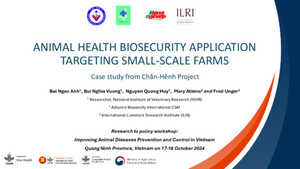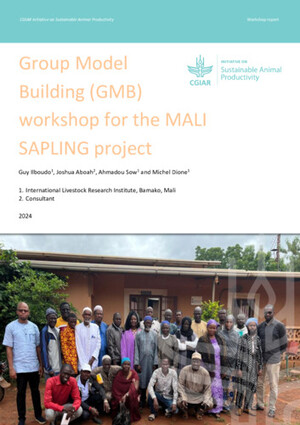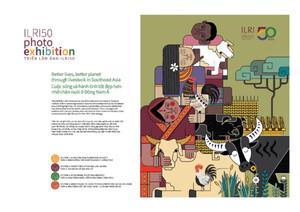
Evaluation du coût de production et de déploiement du vaccin thermostable contre la peste des petits ruminants au Mali
Abstract
Le Laboratoire Central Vétérinaire (LCV) de Bamako a, sur la base d’un protocole de l’Institut International de Recherche en Elevage (ILRI), mis au point un vaccin thermostable contre la Peste des Petits Ruminants (PPR). En prélude au déploiement de ce vaccin sur le terrain, cet institut en charge de la mise en œuvre du projet de diffusion à grande échelle au Mali, a initié une évaluation de son coût de production comparativement aux autres vaccins conventionnellement produits jusque-là contre la PPR par le LCV.
Des entretiens ont été menés avec les chefs de section et les techniciens de recherche à chaque étape de la production du vaccin au sein du LCV. L’estimation des coûts des intrants des vaccins a été faite avec l’appui d’experts des sections de production et marketing. En outre, 34 mandataires de la région de Sikasso ont été interrogés sur le coût de déploiement des vaccins sur le terrain. La méthode de coût complet a été utilisée.
Les résultats montrent que les coûts de production d’une dose ont été estimés à 80FCFA pour le vaccin Xerovac (thermostable), 80 FCFA pour le vaccin classique et 85 FCFA pour le vaccin selon le protocole ILRI (thermostable). De ces résultats, on retient qu’il y a seulement 5 FCFA de différence entre les coûts de production du vaccin selon le protocole ILRI et ceux des deux autres vaccins contre la PPR. Les coûts de déploiement des vaccins (classique, Xerovac et ILRI) contre la PPR du LCV jusqu’à la région de Sikasso ont été évalués à 55 FCFA/dose. En outre, le nombre de doses dans un lot varie d’un type de vaccin à un autre. Au-delà des coûts financiers, il semble nécessaire de développer et d’étendre un programme de vaccination et une meilleure collaboration entre l’Etat, le LCV et les réseaux de distribution. Des actions de sensibilisation des éleveurs sont toutes aussi indispensables pour améliorer la couverture vaccinale des petits ruminants contre la PPR.
ABSTRACT IN ENGLISH: The Central Veterinary Laboratory (LCV) of Bamako has, on the basis of a protocol of the International Institute for Research in Livestock (ILRI), developed a thermostable vaccine against the Peste des Petits Ruminants (PPR). As a prelude to the deployment of this vaccine in the field, this institute in charge of the implementation of the large-scale dissemination project in Mali, initiated an evaluation of its production cost compared to the other vaccines conventionally produced until then against PPR by LCV.
Interviews were conducted with section heads and research technicians at each stage of vaccine production within the LCV. Estimates of vaccine input costs were made with the support of experts from the production and marketing sections. We met with agents from the Sikasso region to calculate the cost of deployment. This is the full cost method that was used to get the results.
The costs of producing a dose have been estimated at 80 FCFA for the Xerovac vaccine (thermostable), 80 FCFA for the conventional vaccine and 85 FCFA for the vaccine according to the ILRI protocol (thermostable). From these results, we note that there is only 5 FCFA difference between the costs of producing vaccine according to the ILRI protocol and those of the two other PPR vaccines. The costs of deploying LCV PPR vaccines (conventional, Xerovac and ILRI) to the Sikasso region have been estimated at 55 FCFA / dose. In addition, the number of doses in a batch varies from one type of vaccine to another. Beyond the financial costs, it seems necessary to develop and extend a vaccination program and better collaboration between the State, the LCV and the distribution networks. Actions to raise farmers' awareness are also essential to improve the vaccination coverage of small ruminants against PPR.
Citation
Dembele, E. 2022. Evaluation du coût de production et de déploiement du vaccin thermostable contre la peste des petits ruminants au Mali. MSc thesis. Dakar, Senegal: Cheikh Anta Diop University.










